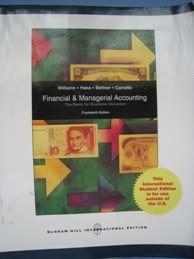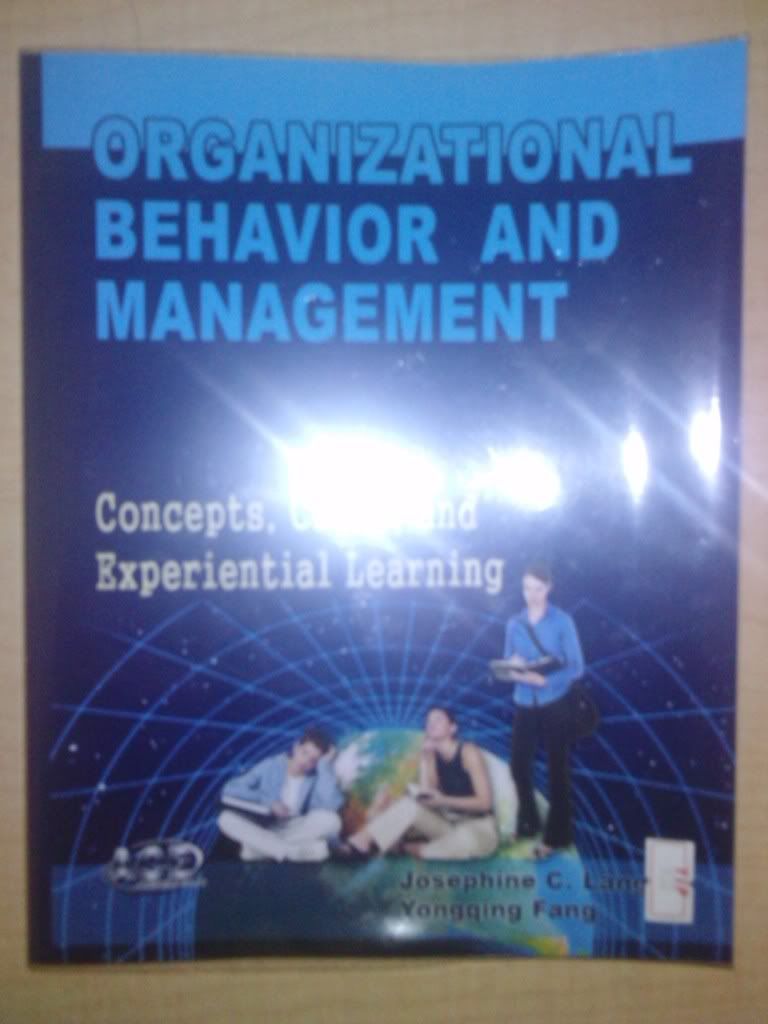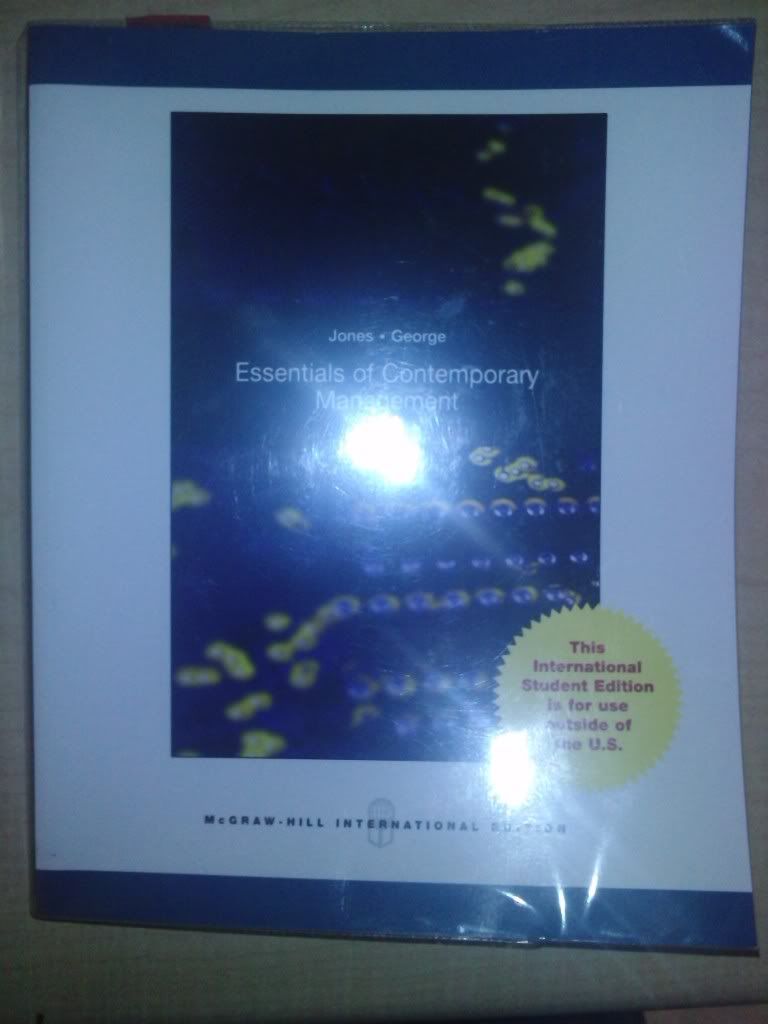Business Minor
These are the modules I intend to take for the completion of my Business Minor.
- MB101/BU8101 Accounting (3AU)
- MB102/BU8201 Business Finance (3AU)
- MB103/BU8501 Principles of Marketing (3AU)
- MB106/BU8601 Fundamentals of Management (3AU)
- MB107/BU8301 Fundamentals of Business Law (3AU) or
- MB363/BU8401 Management Decision Tools (3AU)
Total No. of AU: 15
Overall GPA: 4.8
Why did I choose this combination?
These modules essentially forms the foundation of business. I actually learned this after reading books from Robert Kiyosaki (Author of Rich Dad, Poor Dad), Donald Trump (CEO of Trump Organization, the Apprentice fame), and Warren Buffett (the world's richest man at the point of writing). Firstly, to understand business, you must think and act business. You must understand the numbers in the financial statements to understand the business, and MB101 gives you the accounting foundation. You need to know whether it is worth carrying out certain investments, and this is where MB102 gives you the basics of finance(NPV, risks etc). For any organization to survive, they must attract customers to buy their products or services. This is where MB103 comes in. In addition, an efficient and effective use of resources is important, and MB106 teaches you the fundamentals. Lastly, the business environment is treacherous, and so you need to at least have a basic knowledge of law, which is provided by MB107.
Secondly, if you are making plans to pursue Master in Business Administration(MBA) after you graduate, having a business minor with your foundations built is necessary. I believe this is the best subject combination for business minor suitable for this purpose.
Lastly, the concepts learnt from all these modules are applicable to any organizations, including CCAs. As such, anyone aiming for leadership positions should pursue this combination.
MB101/BU8101 Accounting (3AU) Study Techniques:
Study Techniques: Notes
Notes:
(Financial)(Managerial)Results: A
How did I study?
I wrote notes after every chapter as part of revision, and compile them as shown in the link. This is my JC study technique, as I didn't believe in mindmaps then. I think I could have done better if I had used mindmaps, as I end up forgetting 1 major concept that comes out as a whole question. This costs me around 20 marks. In addition, I took the effort to understand annual reports, and would read them from the first to last page.
Mistakes made:1. I could have done better if I have placed more bet in cash flow statement.
2. I should have followed my time management plan rigidly.
Tips for scoring:
1. Read up the chapter before going for lesson, as lecture is a mad rush (for me during special term).
2. After the lectures, do your tutorials faithfully.
3. Do a revision after your tutorials
4. Master your skills in doing the 3 important financial statements (Income statement, balance sheet, and especially Statement of Cash Flow)
5. Practice all the textbook problems at the end of each chapter.
6. Do a final revision before the exam.
7. Try out at least 3 past year exam papers before the actual paper to familiarise yourself with the format. This can also help you in planning your time management.
Overall Opinion:
For people who are attempting for the business minor, this is the first major obstacle you have to face. Why is it so?
Firstly, the module requires you to be competent with both financial and managerial accounting. For people studying business, they did financial and managerial accounting in separate modules. So you can have some gauge how much contents are being summarized (or condensed).
Secondly, among all the business minor modules, this module has the thickest textbook and the most chapters (22 out of 24 in the textbook). So you can imagine how much contents there are for this module.
Thirdly, for my special term, we cover 2/3 chapters per 1.5 hour lesson, followed by 1.5 hour tutorial. You can imagine the mad rush of complicating concepts during that short period of time. I'm not sure how this module is taught during semester, but I guess it will be better.
Lastly, for the exams, it is a mad rush for 2.5 hour worth of exam that is given only 2 hour to finish. For those who manage to finish them confidently (which excludes me, and that explains the missing + beside the A), I salute them. These are the people who are 99% clear of the module.
This is why I intend to take it during special term, and why it is the first module I took for the business minor.
For those who are aiming for business minor, I suggest you try this module first, then reconsider your options. It is a great test of your interest in business.
To know business, you must know the numbers. Its importance explains why it is a pre-requisite for business minor.
MB102/BU8201 Business Finance (3AU)
Study Techniques: Mindmaps
Notes: (mindmap)
Results: A+
How did I study?
Essentially I did the tasks that I have listed as tips for scoring below. In addition, I finished about 12 MB102 exam papers and 5 AB102 exam papers.
Mistakes made:
Can't think of any. Maybe never practice enough?
Tips for scoring:
1. Read up the chapter before going for lesson
2. After the lectures, do your tutorials faithfully
3. Do a revision/mindmaps after your lectures/tutorials.
4. Practice all the textbook problems at the end of each chapter to familiarise with the concepts.
5. After this, review the chapter.
6. Do a final revision before the exam.
7. Try out at least 3 past year exam papers before the actual paper to familiarise yourself with the format. This can also help you in planning your time management.
Overall Opinion:
After being trained well by the rigours of MB101, this module seems like a breeze to me. In fact,
Some of my friends actually dropped this course because they don't understand the financial ratios. But it is a bad choice. Financial ratios only form a very small part of business finance. What is more important, and given greater weightage are the topics towards the end.
The seminar is a full 3 hour session for 1/2 topics (compared that to MB101). There is no tutorials. As such, self-discipline is very important. Do take your own initiative to practice.
I manage to finish all tutorials, textbook exercises and mindmaps after 3 weeks out of total 5 weeks of module (did everything fast because I initially plan to go for orientation camps during this period). I manage to do 3 rounds of revision before going for exams and camp within the remaining 2 weeks. So yup, the module is not that taxing.
The exam is 2 hours but within 1 hour, you can see a lot of people leaving the exam hall. BUT you should stay and check your paper thoroughly for the remaining 1 hour. This is how you get to the other side of the bell curve.
For people who are aiming for business minor, you have no choice as this is your pre-requisite. For others, I highly recommend that you take this as your GER(PE).
MB103/BU8501 Principles of Marketing [Marketing in the 21st Century] (3AU)
Personal Notes:
(mindmaps)
Study Techniques: Mindmaps
Results: A+
Lecturer: Boey Yew Tung
The result for this module was really a 'stun' for me, as I put in e least effort for it. Firstly, it was a last minute add/drop decision. I already have 20AU then and wasn't sure if I can cope with another 3AU module. It was a 9.58pm add but at 10pm regret decision. I was on the verge of SUing it for the sake of grades but decided not to so I can complete my minor. There are few reasons for it.
Firstly, I didn't have much choice who my group members are. Those who added at the last minute already has a group ready for them, while those who joined the tutorial class alone (like me) can only join the group on the verge of breaking (I heard 3 other members left the class). This is like a recipe for flanking this module, with group work constituting 40%. So I ended with a group with 2 chinese, 2 indians, 1 indonesian and myself, within which 2 people already intend to SU.
Secondly, we kind of flanked our first few presentation. In fact, we changed our presentation topic after the first presentation, and second presentation was a so-so. We're lucky that we hit the right buttons for our third presentation, which has the highest weightage (15%). The tutor like our presentation a lot, being concise and straight to the point. But from this group, I really see a lot about human behaviour. The two person who SU the module put in much more effort, in fact more than me. I really appreciate what they do. Also, I don't really like the look that my tutorial classmates gave me just because I'm in an 'outcast' group. Other personal comments about my group are censored, if you wish to know can come find me.
However, I still put in certain amount of effort for this module. The lecturer was interesting, but since he regurgitate the same content from the textbook, I guess going to lectures is a waste of time. As I did not have a chance to stay in hall, reading the textbook becomes a daily MRT affair, and I would draw my mindmaps when I got home. So before the start of recess week, I'm already done with my module.
The mindmaps really help in the final examination, as I do not need to flip the textbook to find the suitable keywords for that question. All it needs is about 20 pages of paper. I think I score well for the final exams, as I have so much to write within 2.5 hours that I only left with 2 blank pages of the exam booklet at the end of the exam (Not sure how many pages I write, but you can count the total number of pages then minus two). Was expecting B+/A-, so an A+ really comes as a big surprise.
MB106/BU8601 Fundamentals of Management (3AU)

 Study Techniques:
Study Techniques: Mindmaps/Definition List
Notes: (Mindmap)Results: B+
How did I study?
1. Read up (too ahead) before every chapter.
2. Read both recommended textbooks.
3. Did my mindmaps faithfully.
4. Did my tutorials faithfully.
5. Spot questions before exam and clarify with the tutor.
6. Start doing my course assignments early.
Mistakes made:
1. I read up too early before every chapter. As such, everything seems foreign again before the lecture.
2. I never take the initiative to read up more (too engrossed in games n cca during semester).
3. I never practice extra questions.
4. I never try a full exam papers and get my time management plan right.
5. I never follow rigidly to my time management plan.
6. I should have set my watch to the correct time and not fall into complacency that I still have 5 min left always.
7. I should not have leave my assignment done in the last minute.
8. Mindmaps was done too late after or too early before lectures.
Tips for scoring:
1. Read up the chapter before going for lesson
2. After the lectures, do your tutorials faithfully
3. Do a revision immediately after your lectures/tutorials
4. Master your skills in doing the 3 important financial documents (Income statement, balance sheet, and especially Statement of Cash Flow)
5. Practice all the textbook problems at the end of each chapter.
6. Do a final revision before the exam.
7. Try out at least 3 past year exam papers before the actual paper to familiarise yourself with the format. This can also help you in planning your time management.
Overall Opinion:I agree with Dr. Kamal Kant. Management IS both science and art. After doing mathematical business modules (101 and 102), this module is a definite challenge to me. It is very abstract, and giving good and concrete arguements is a necessary skills.
Exam is a mad rush. I wrote in my worst ever handwriting and fastest ever speed, and manage to write 10 pages of answers, but I only answer 5 out of 7 questions and lose 25 marks for free. The remaining 2 questions, I can only do what is needed to salvage with the remaining time. Hence do plan your time in the exam properly.
Exam tips was given in the last lecture, so DO NOT MISS THE LAST LECTURE(Actually every lecture is important, so do not miss any). Questions was set by Dr Kant, and it was exactly the tips he has given. Nonetheless, you should not limit only the topics he's listed. Study all topics to give your answer substance, but focus on the ones he has given.
To score an A, mastering the concepts in the two textbooks is definitely not enough. There are millions of management concepts in the world, and it is by listing concepts outside the textbook that differentiates you as an A student. I actually found that out when I re-read the Art of War after exams. So do read up, it's a good investment.
MB363/BU8401 Management Decision Tools (3AU) Personal Notes:(mindmaps)Assignments:(Assignment 1)(Assignment 2)Study Techniques: Mindmaps
Results: A
Lecturer: Dr. Li Zhi-Feng, Michael
Among the Business GER(PE) modules, MB363 seems to be the least easy one, despite the fact that it is usually 250%-300% oversubscribed. The reason for its oversubscription is because 1. The class size is really small (limited to about 50 for 2 classes) and 2. It used to be an easy module. The marking scheme for this module consists of 2 assignments of 15% each, group report and presentation of 15%, and final examination of 55%.
This class is usually taken by people in their 3rd/4th year of studies, so I guess I was really lucky to got in during Year 2 Sem 1. To score in this module, you need to be good in math, and also have a background in economics, not forgetting having good groupmates. I was lucky to be able to join a group who not only takes our work seriously (discussing about the assignments and correcting each other's mistakes), did our fair share of work, but also knows how to have fun.
As for the final exam, although it's an open book, those who have taken the module would agree with me that it is usually hard to complete the exam within the stipulated time, and also there's always one/two parts of a question that would 'stun'.
Overall, if you have an keen interest in operation management (like me), I think it would be good to take up this module. It's good to get the grades, but what counts more is the learning.
Labels: 2.2 Business Minor
 Making the Impossible Possible
Making the Impossible Possible 4 comments
4 comments @ 8:03 PM






 Making the Impossible Possible
Making the Impossible Possible